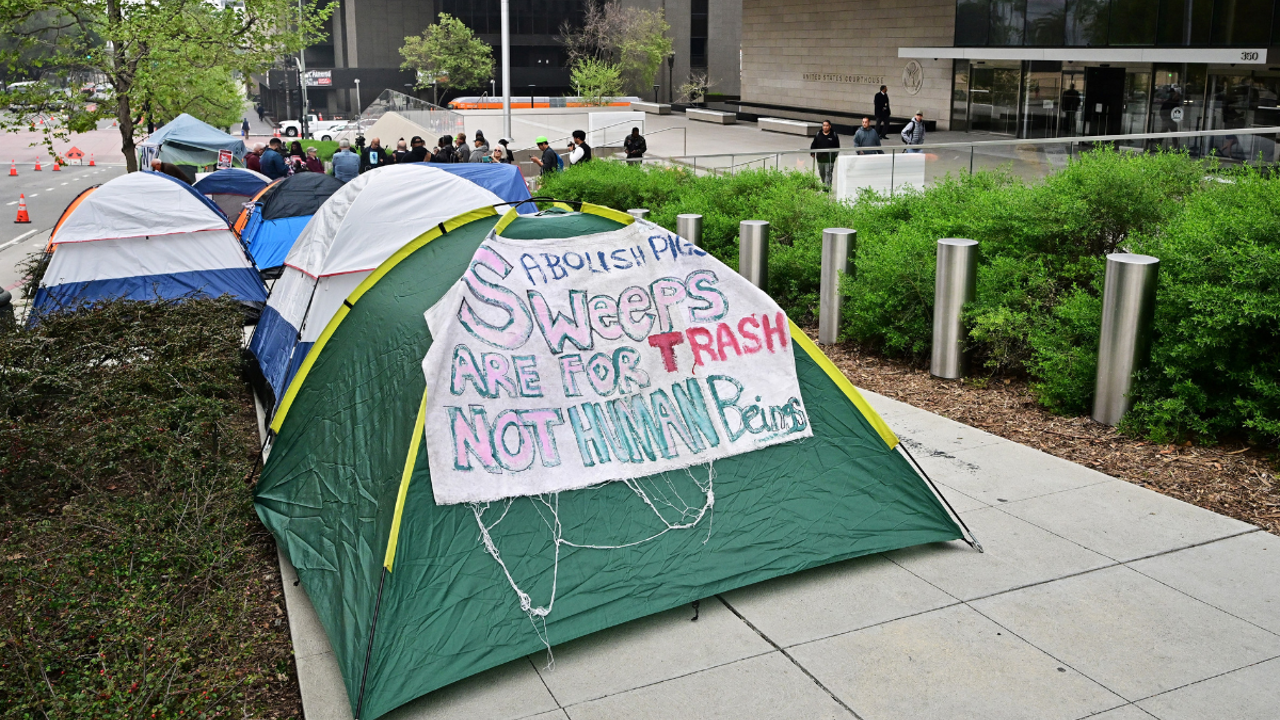US Supreme Court debates legality of homeless sleeping bans
U.S. Supreme Court deliberates on whether cities can enforce bans on homeless individuals sleeping outdoors, amid escalating homelessness rates and a lack of available shelter accommodations

The United States Supreme Court engaged in deliberations Monday regarding the contentious issue of whether cities can enforce bans on homeless individuals sleeping outdoors, amid a backdrop of escalating rates of homelessness across the country and a dearth of available shelter accommodations.
The focal point of the case lies in the regulations implemented by the City of Grants Pass, situated in Oregon's western region. These regulations prohibit camping or the use of bedding on public premises, a response to the proliferation of tents, blankets, and makeshift shelters within public parks.
Individuals found violating these regulations face fines amounting to hundreds of dollars and potential incarceration for repeat offenses.
Homeless advocates have strongly contested these measures, contending that outlawing camping in the absence of alternative sleeping arrangements constitutes a form of "cruel and unusual punishment," a violation of the Eighth Amendment of the US Constitution.
The imminent decision from the nine Supreme Court justices, anticipated by June 30, carries significant ramifications against the backdrop of a record-high homelessness rate. As per a 2023 survey, an estimated 653,100 individuals nationwide are experiencing homelessness.
Kelsi Corkran, representing the opposition to the ban, emphasized before the Supreme Court on Monday, "The ordinances effectively render it impossible for homeless individuals to reside in Grants Pass without facing continuous fines and potential imprisonment."
Corkran further asserted that the ban exacerbates the city's homelessness predicament by displacing its homeless populace into neighboring jurisdictions.
Contrarily, Theane Evangelis, representing Grants Pass, defended the city's penalties as "not in any way unusual." Evangelis urged the justices to overturn the Ninth Circuit's previous ruling from 2022, which had invalidated the city's regulations.
According to Evangelis, the 2022 ruling had "fueled the spread of encampments while harming those it purports to protect."
Grants Pass, with a population of approximately 40,000, lacks a municipal homeless shelter and relies on the assistance of private charitable organizations.
Responding to queries from Chief Justice John Roberts about the city's course of action if its appeal is unsuccessful, Evangelis expressed that the city's options would be severely constrained.
"It will be forced to relinquish control of its public spaces," she remarked.
Roberts underscored that the city's ban does not necessarily equate to the criminalization of homeless "status," as this status can potentially change based on shelter availability or other factors.
"You can transition out of homelessness instantly by relocating to a shelter or under different circumstances, and conversely, the situation could regress if one is expelled from the shelter," noted Roberts.
Justice Elena Kagan, among the three liberal justices on the predominantly conservative bench, rebuked city authorities for criminalizing a "biological necessity."
"You could argue that breathing is conduct as well, but presumably, you wouldn't condone the criminalization of public breathing. Similarly, for a homeless individual without a place to go, sleeping in public is akin to breathing in public," remarked Kagan.
Besides factors such as poverty, substance addiction, and insufficient shelter capacity driving homelessness, economists highlight the shortfall in the nation's market-rate housing supply.
This deficit, they argue, leaves the United States in need of millions of additional homes to satisfy demand, thereby inflating prices for existing housing.
Source: AFP







